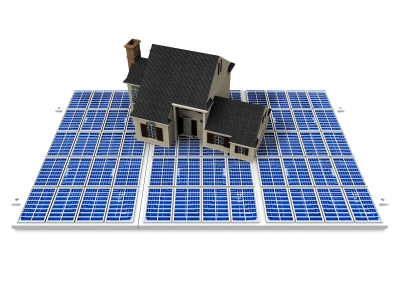Published May 10, 2021
Pros and Cons of Adding Solar to your Home

The Solar Dilemma – Should you Buy, Lease, or Sign a PPA?
Living and being a Realtor in sunny Coronado, CA there’s an important topic that often comes up with my clients when it comes to homeownership and that is solar power.
If you’re from California, you’re likely aware of our state’s title as being one of the best for solar energy in the entire country thanks to our abundance of sunshine and forward-thinking policies regarding reusable energy. In fact, just this past year (2020), California became the first state to create a new Solar Mandate that requires the use of solar panels on the roofs of many new homes to save energy and help the environment.
If you’re already a homeowner, you likely know that when it comes to solar panels and your home, you have options. You may not, however, know which option is right for you or the benefits of your different options.
If you’re a renter or someone that is still waiting to purchase your first home, you may be totally in the dark when it comes to solar energy and homeownership.
That’s why I’m giving you a quick breakdown of your options including the costs and benefits for your home’s solar electricity system.
Leasing
Just as you would sign a lease to rent an apartment, leasing solar panels means signing a contract and paying a fixed monthly rate to a third-party company rather than owning your system outright.
This option is often enticing for customers as it is easy and affordable. This is because leasing removes the high upfront cost of equipment, solar panels, and installation fees. However, is it the best long-term option?
The truth is, it depends on your financial goals and current needs. If you don’t feel that taking on the responsibility or financial burden of buying, leasing is an ideal option. Leasing is also ideal for those with less than perfect credit scores.
Another important thing to note about leasing - if you ever plan on selling your home in the future, a solar lease may be a potential speedbump in the transaction. Before you lease, make sure that you know and understand what the transfer requirements are before signing.
Power Purchase Agreement
Like leasing, a solar power purchase agreement (PPA) is a financial contract between a customer and developer where the developer is responsible for the design, permitting, financing and installation of the solar energy system on a property.
A PPA can be offered at little to no cost to a customer upfront and also offers a fixed rate that is typically lower than the local utility’s rate.
PPA contracts typically range from 10-25 years and offer customers the benefits of taking operation and maintenance off their hands for the duration of agreement. Once the PPA is null, the customer can choose to extend their contract, have the developer come remove the system, or even choose to purchase the system directly from the developer.
The benefits of this option include paying little to no upfront costs, overall reduced energy costs savings, limited risk as the developer is responsible for system performance and a potential increase in property value.
It is also important to note that when you sign a PPA, you are agreeing to purchase all of the power that the panels generate, so make sure that you accurately calculate exactly how many panels you will need and the costs.
Buying/Owning
While leasing or signing a PPA has all the appeal due to the fact that you save money upfront, when thinking long-term, the best way to maximize savings and returns is to buy your own solar energy system.
Why? Because like homeownership, when you buy, all savings go directly in your pocket rather than the pocket of a developer, third-party company (or landlord in the case of homeownership). In fact, when it comes to buying, research shows you can expect to gain between 40-70% ROI – which is no small number.
If you choose the ownership route, you can also take advantage of the Investment Tax Credit (ITC), a federal tax credit that helps pay for solar projects and allows owners to deduct 30% of their system costa directly from their tax bill.
While buying is a great long-term option, it doesn’t come cheap (as ownership rarely does out-front). Systems range between 10-20k, however, if you are eligible, you can receive a loan to help finance your system, some even with $0 money down options.
No matter which option you choose, the benefits and cost savings of utilizing solar energy are not only good for you and your wallet, but for the environment, too.
I’d love to hear your thoughts on whether you own, lease, or have a PPA for your solar energy system! And, if you’re still not sure which is right for you, let’s connect to chat through the pros and cons of both. Give me a call today: Kate Gillingham Milke (619) 933-5319.
Sources:
https://www.consumerreports.org/energy-saving/real-cost-of-leasing-vs-buying-solar-panels/
https://www.energysage.com/solar/financing/should-you-buy-or-lease-your-solar-panel-system/
https://www.seia.org/research-resources/solar-power-purchase-agreements
https://news.energysage.com/an-overview-of-the-california-solar-mandate/





